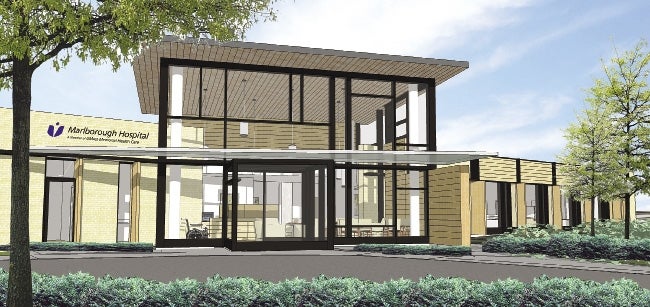Fifteen years ago, anyone in Fitchburg or Southbridge, or most other Central Massachusetts communities who was diagnosed with cancer would have had two basic choices about their treatment: Worcester or Boston.
Then, in 2001, the Simonds-Sinon Regional Cancer Center in Fitchburg opened. In 2008, Milford Regional Medical Center opened a $25-million cancer center in Milford with Boston’s Dana-Farber/Brigham and Women’s Cancer Center. The next year, Harrington Hospital in Southbridge got its own cancer center. This spring, Marlborough Hospital is following suit, while Saint Vincent Hospital is close to pulling its cancer services from various locations into its high-profile new digs in Worcester’s downtown CitySquare development.
But as technology for treating cancers grows ever more complicated—and more expensive—delivering the state-of-the-art care any seriously ill person would want to every corner of the region is not simple.
For patients and their families, the advantages of having treatment close to home are clear. Susan Zuker founded a fundraising organization, the Framingham-based Conquer Cancer Coalition of MA, after her husband died of lung cancer, and she works with many people affected by the disease.
“When you get diagnosed it’s like somebody put you on a planet you’ve never been on and there’s a new language,” she said. “It certainly helps to have something in your neighborhood.”
Zuker said that, during this winter’s snowstorms, her first thought was of patients who need radiation therapy every day for weeks. She said driving a few miles to a local community hospital instead of all the way to a major teaching institution makes life much easier.
More and more, even the most sophisticated forms of treatment are available in locations spread around the region. UMass Memorial Health Care’s Simonds-Sinon Regional Cancer Center in Fitchburg has a TrueBeam radiotherapy accelerator, which can deliver quick, precise treatments, and Thomas J. FitzGerald, UMass’s chair of radiation oncology, said another system will be installed at the Marlborough campus.
“Long term, there is a need for very advanced treatment technology in community hospitals,” he said.
Meanwhile, Saint Vincent recently began offering treatment with a robotic radiosurgery system called the CyberKnife, which will be moved to the new cancer center location. Hospital spokesman Dennis Irish said patients previously would have had to travel to Boston or farther to receive treatment with the technology, which can treat otherwise inoperable tumors.
Irish said that, while the machinery is costly, services at Saint Vincent are often less expensive than at Boston teaching hospitals. He said the hospital draws patients mainly from Worcester and two towns outside the city.
“Having these services, we may take some business away from Boston, and that saves money for employers and patients,” he said.
But Eric Linzer, senior vice president of the Massachusetts Association of Health Plans, said too much duplication of services can raise overall costs, and it’s important to make sure the resources are used as efficiently as possible.
“At a time of limited and finite resources there also has to be a review of where the services are taking place.”
Too Many Cancer Centers?
Gerard Anderson, director of the Johns Hopkins Center for Hospital Finance and Management, in Baltimore, said private and government payment systems tend to overpay for cancer treatment, creating an incentive for the construction of too many cancer centers. While the need for cancer treatment is growing between 0.5 percent and 1 percent per year, cancer centers are growing around 5 percent annually.
“The supply is greatly exceeding demand,” he said.
But FitzGerald said the finance of cancer care is changing rapidly. This year, he said, the reimbursement the UMass system receives for radiation-oncology dropped 8 percent. Along with a more general push for cost-cutting in the institution, he said, that change has demanded new strategies and more discipline around how care is delivered.
Extending more care into more communities requires both technical solutions and strategic partnerships, FitzGerald said. On the technology side, one example is the new accelerator that will be installed in Marlborough. Instead of buying a new piece of expensive equipment, one of the machines from the UMass Memorial Medical Center’s University campus in Worcester will be moved to the new location. That means dropping from three to two accelerators at the central location, something that’s possible only because of improvements in technology over the past decade, with the treatment itself taking just two minutes, he said.
“Our processes have become far more nimble,” he said.
Bringing treatment to multiple locations also depends on an IT system that lets doctors look at test results from any campus and allows for patient planning for all sites to be done at a one location.
That’s also where the strategic partnerships piece comes in. FitzGerald’s department is not only responsible for cancer care within the UMass system. It oversees a total of nine campuses.
“I personally believe that within two years there’s going to be a stark realization that the finances are actually going to create alliances,” he said.
Read more

